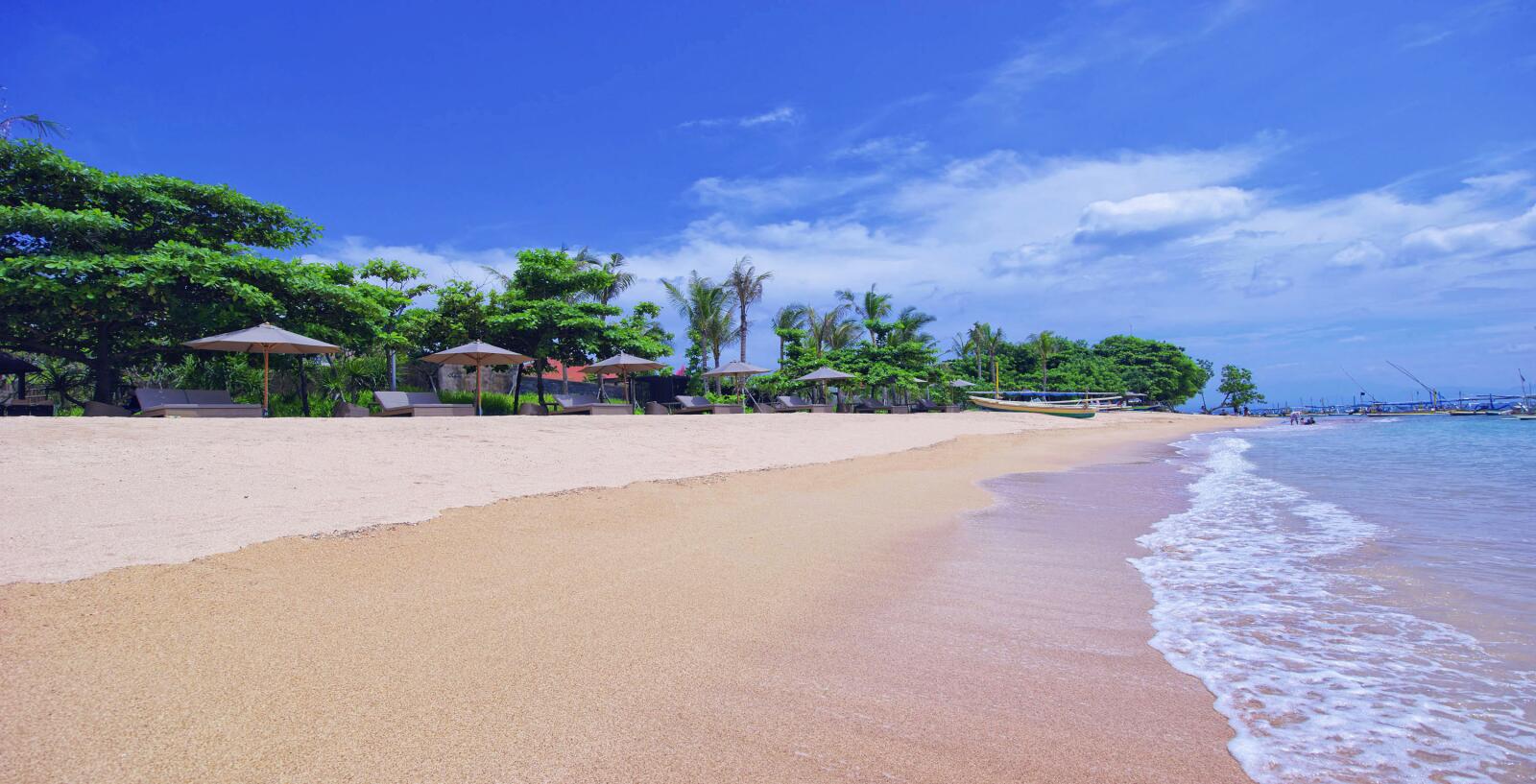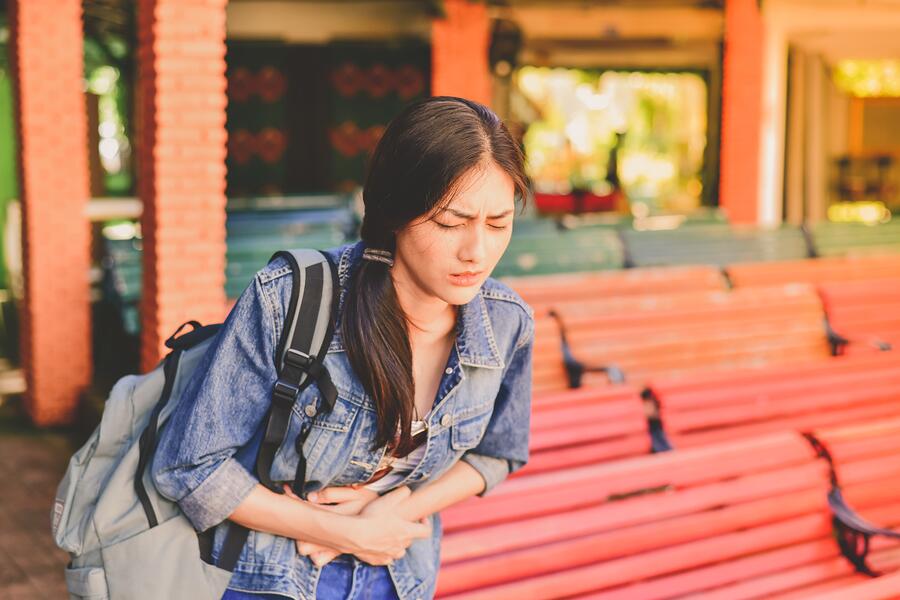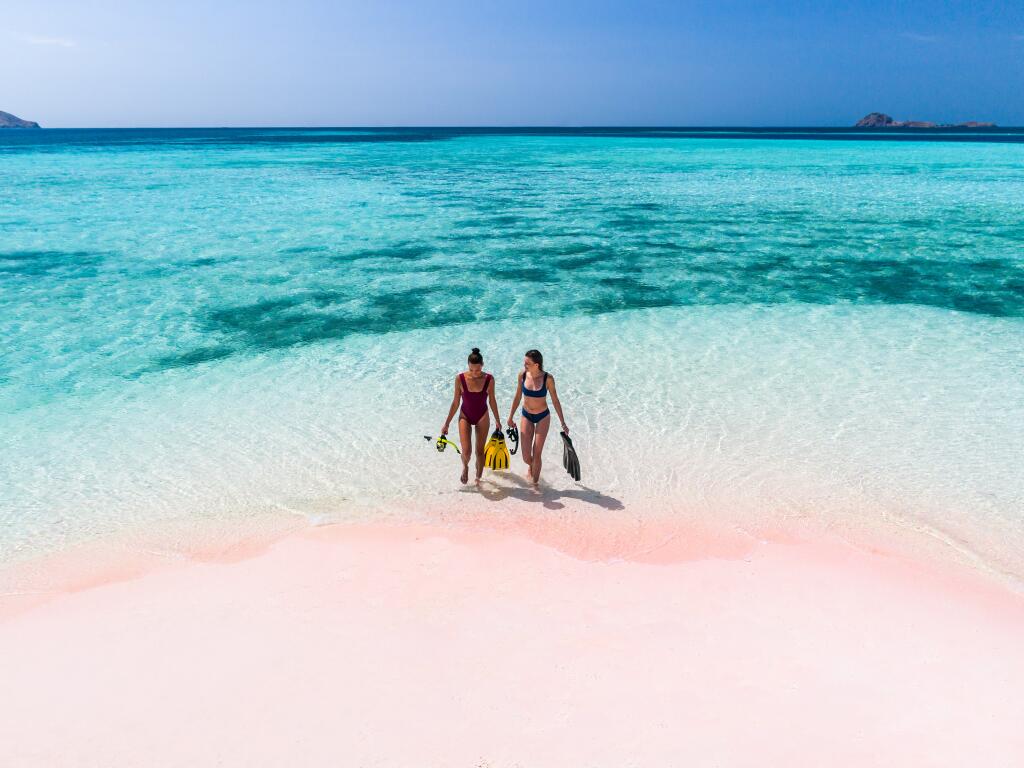
How To Prevent & Manage Bali Belly (Traveller's Diarrhoea)
Thanks to its stunning beaches, vibrant culture, and affordable getaways, Bali is a go-to destination for travellers around the world.
However, a common concern for many tourists is Bali Belly—a term that describes a traveller's diarrhoea and related stomach issues that can disrupt your dream vacation.
According to Bali Travel Insights (July 2024), the island receives millions of visitors annually, with Australians leading the numbers at 155,143 visitors in July alone.
If you're planning a trip or ready to jet off, this guide will help you prepare, prevent, and manage Bali Belly, so your travel doesn't turn into a game of come and go with the toilet—like it has for so many others.
What is Bali Belly?
Bali Belly is a colloquial term for traveller's diarrhoea, commonly experienced by visitors to Bali. It is typically caused by consuming food or water contaminated with bacteria like E. coli, viruses, or parasites. Sometimes, it can simply result from your body adjusting to unfamiliar bacteria in the local environment.
Symptoms can vary widely, from mild stomach discomfort to severe dehydration, highlighting the importance of understanding and preventing this condition. In other regions, Bali Belly may also be referred to as traveller's diarrhoea or Montezuma's revenge.
Recently, social media has played a key role in raising awareness about Bali Belly, with many travellers sharing their experiences to help others prepare for or avoid the condition.
Bali Belly Symptoms
Recognising the symptoms of Bali Belly early can help you manage the condition effectively. Common symptoms include:

Why Are You at Risk in Bali?
Tourists are at greater risk of Bali Belly due to:
- Local Food and Water: Bali's tap water and street food may contain bacteria that tourists aren't used to, raising the risk of stomach illnesses like Bali Belly, especially in areas with lower food safety standards.
- Hygiene Standards: Some local food vendors may not follow the same hygiene practices that tourists are familiar with, increasing the chances of food contamination. Street food, in particular, is often prepared in places where cleanliness is not always a priority, increasing the risk of harmful bacteria.
- Environmental Factors: Bali's tropical climate is perfect for bacteria to grow, especially in places where food is left unrefrigerated or water isn't treated. The heat speeds up bacterial growth, raising the risk of contamination and making tourists more likely to get sick.
How to Avoid Bali Belly
Preventing Bali Belly starts with these essential tips:
1. Drink Only Bottled or Boiled Water: Avoid tap water entirely, including for brushing your teeth. Check that bottled water has an unbroken seal.
2. Be Careful with Ice: Ice is often made with tap water, so stick to ice from reputable places that use filtered water. If you're unsure, it's safest to avoid ice or ask if it's purified.
3. Choose Your Food Wisely:
- Eat at reputable restaurants or those highly rated by other tourists.
- Avoid street food unless you are confident in its preparation.
- Steer clear of uncooked or undercooked foods like salads, seafood, and rare meats.
4. Wash Your Hands Frequently: Use soap and water or carry hand sanitiser if washing facilities are unavailable.
5. Take Probiotics: Consider taking acidophilus tablets daily to boost your gut health.
6. Start Slowly: Let your stomach adjust by gradually introducing new foods instead of diving straight into local delicacies.

What Can You Not Eat in Bali?
Food is a common cause of Bali Belly, so it's wise to be careful about what you eat. To reduce your risk, avoid the following:
- Unpeeled fruits and vegetables: Stick to fruits you can peel yourself.
- Tap water: Drink bottled or filtered water only.
- Raw or undercooked street food: Choose freshly cooked food.
- Unpasteurised dairy: Opt for pasteurised options.
- Raw seafood: Avoid sushi or ceviche.
- Unreliable food sources: Choose clean, reputable vendors.
Is Bali Belly Contagious?
Yes, Bali Belly can be contagious, as it may spread through direct contact or by sharing food and drinks. To minimise the risk of transmission or infection:
- Wash your hands frequently.
- Avoid sharing utensils, drinks, or food with someone unwell.
- Disinfect surfaces that an infected person has touched.
While the condition is not highly contagious in the traditional sense, it's still important to take these precautions to protect yourself and others during your travels.
How Long Does Bali Belly Last?
Bali Belly usually lasts between 24 to 72 hours if you take proper care, like drinking plenty of fluids, resting, and eating bland foods. Most people recover quickly without needing medical help.
However, in more severe cases, symptoms can last up to a week. If you notice symptoms getting worse or not improving after a week, it's important to see a doctor. You might need extra treatment, like fluids through an IV or antibiotics, to help your body recover.
Acting early and staying hydrated can help you feel better faster and avoid serious problems.
How to Prevent Bali Belly
Preventing Bali Belly isn't just about watching what you eat—it's also about staying mindful of your habits to reduce your risk of infection. Here are some practical tips to help:
1. Carry hand sanitiser: Use it often, especially before eating or after touching surfaces in public places.
2. Be cautious with street food: During your first few days, while your stomach is adjusting to new foods and water, stick to restaurants or eateries with high hygiene standards.
3. Choose bottled water: Always drink bottled or boiled water and avoid tap water, even for brushing your teeth. Be mindful of ice, as it's often made with tap water.
4. Avoid raw or risky foods: Stay away from raw vegetables, salads, or unpeeled fruits that may have been washed in unsafe water.
5. Take travel probiotics: Start taking probiotics a few days before your trip and continue during your stay. They can help strengthen your gut and make it more resistant to harmful bacteria.
6. Be careful with seafood: In remote areas or less hygienic spots, avoid eating seafood, as it may not be fresh or properly prepared.
By following these simple steps, you can reduce your chances of getting Bali Belly and enjoy your holiday with peace of mind.
Cure for Bali Belly: Treatment Tips
If you do catch Bali Belly, here are steps to manage it:
1. Stay Hydrated: Drink plenty of bottled water or oral rehydration solutions.
2. Take Medication:
- Use anti-diarrhoea tablets like Imodium.
- Activated charcoal tablets can help absorb toxins.
3. Eat Lightly: Stick to bland foods like rice, bananas, and toast.
4. Rest: Allow your body time to recover.
5. Seek Medical Help: If symptoms worsen or you're dehydrated, visit a local doctor.
What to Eat and Drink While Recovering
Plain Rice: Easy to digest and helps settle your stomach.
Bananas: High in potassium to replace lost electrolytes.
Plain Toast or Crackers: Gentle on the stomach.
Coconut Water: Natural electrolytes to rehydrate.
Herbal Teas: Ginger tea can soothe nausea.
Risks of Other Foodborne Illnesses in Bali
While Bali Belly is the most common, other risks include:
1. Typhoid Fever: Caused by contaminated food or water.
2. Hepatitis A: Transmitted through food or drink.
3. Giardia: A parasitic infection leading to prolonged diarrhoea.
Being cautious about food hygiene helps mitigate these risks.
Can You Get Bali Belly After Returning Home?
It's possible to experience Bali Belly after returning home. Symptoms can develop if you consume contaminated food or water shortly before leaving Bali, as they may take a day or two to appear.
If symptoms persist for more than a few days, worsen, or cause dehydration, it's important to see a doctor. Mentioning your recent travel history is crucial, as it helps your doctor determine if the cause is a bacterial, viral, or parasitic infection.

Other Health Risks When Travelling in Bali
Mosquito-Borne Diseases: Protect yourself from dengue fever by using mosquito repellents.
Sunburn and Dehydration: Stay hydrated and wear sunscreen.
Animal Bites: Avoid contact with stray animals to reduce rabies risk.
Conclusion
Knowing about Bali Belly and how to prevent it gives you the power to enjoy your trip to the fullest. By taking simple precautions like drinking bottled water, eating at reliable places, and practising good hygiene, you can avoid any health hiccups.
This knowledge isn't just useful for Bali - it's a smart approach for any trip. With the right preparation, you'll be ready to make the most of your Bali trip, wherever you go. The key is being prepared so you can focus on the good times and not let anything hold you back.
Bali Belly FAQs
How long does Bali Belly last?
It typically lasts 24 to 72 hours but may persist for up to a week in severe cases.
What are the symptoms of Bali Belly?
Symptoms include stomach cramps, diarrhoea, nausea, vomiting, mild fever, and fatigue.
How can I avoid Bali Belly?
Drink bottled or boiled water, avoid raw or undercooked foods, eat at reputable places, and practise good hand hygiene.
Is Bali Belly contagious?
Yes, it can spread through direct contact or shared food and drinks
Now You Know How To Prevent It - So Let's Visit Bali Paradise!
Now that you know how to prevent and manage Bali Belly, don't miss out on all the incredible experiences Bali has to offer. See our exclusive deals at trusted hotels and resorts with excellent dining and hygiene standards.
Your holiday will be as enjoyable as it is safe—view our popular Bali holiday packages below:
Planning a trip to Bali?
TravelOnline offers an extensive Bali Travel Guide to make your holiday seamless and enjoyable. From choosing outstanding accommodation to exploring must-see attractions, our guide has everything you need to plan an unforgettable Bali getaway.







